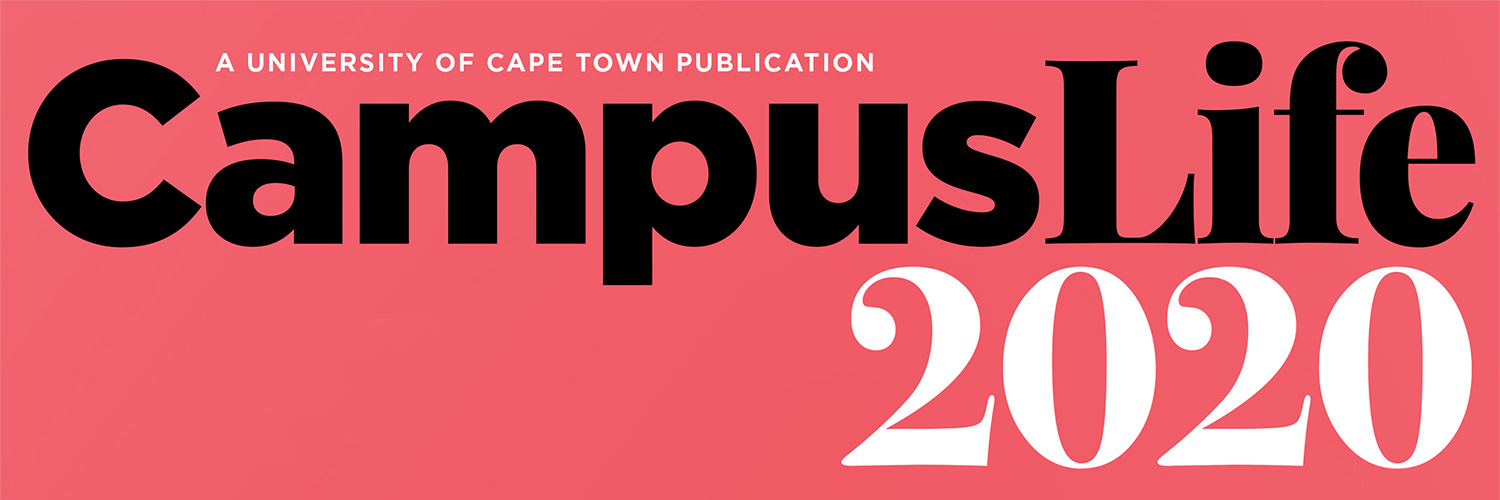Your UCT
20 January 2020
5 strategic goals
- Creating a new and inclusive identity
- Establishing global partnerships with a distinctive African lens
- Remaining a research-intensive university
- Harnessing innovation in teaching and learning
- Achieving social impact through engaged scholarship
*33 catered or self-catering residences
- 6 702 students live in UCT residences
- 21 947 students live off campus
*Figures from 2018
40 different sports
Sports facilities include:
- a rowing club
- astro turf hockey fields
- tennis and squash courts
- an indoor sports facility and soccer, rugby and cricket facilities.
The UCT Gym is on lower campus near Graça Machel Hall.
100+ societies to choose from
Societies are run by students and reflect various interests, including academic, religious, cultural, social and political activities.
Students by faculty (including the Graduate School of Business)
- 6 722 – Commerce
- 708 – Graduate School of Business
- 4 839 – Engineering & the Built Environment
- 5 021 – Health Sciences
- 7 358 – Humanities
- 286 – Law
- 3 095 – Science
123 countries represented on campus
South Africa – 23 664
Southern African Development Community – 2 796
Elsewhere in Africa – 984
Elsewhere in the world – 1 521
Undeclared – 64
29 029 students enrolled in 2019
- 15 539 female
- 13 470 male
- 18 transgender
- 2 unspecified
- 16 698 undergraduates
- 11 095 postgraduates
- 1 236 occasional students
5 630 new first-years were accepted at UCT in 2019
Around 7 000 students graduate each year
5 000+ permanent staff
- 3 700 professional, administrative support and service (PASS) staff.
- 1 208 permanent academic staff members worked at UCT in 2018.
86 languages are spoken
The largest South African language groups are:
- English 16 084
- isiXhosa 3 020
- isiZulu 1 777
- Afrikaans 1 170
- Setswana 585
12 things that make UCT unique
- #1 in Africa: UCT is the highest ranked African university according to Times Higher Education and Quacquarelli Symonds world university rankings.
- Oldest: Established in 1829, UCT is South Africa’s oldest university.
- First black woman graduate: Anti-apartheid and civil rights leader, Zalnunnissa (Cissie) Gool, graduated from UCT with an MA in 1932.
- Centre for Higher Education Development: CHED partners with all faculties to ensure students don’t just gain access to UCT, but also succeed.
- 15% of SA’s NRF-rated researchers: UCT has 541 National Research Foundation (NRF)-rated researchers.
- 44% women: 44% of the academics at UCT are women.
- 25 km2: The total area of UCT’s campuses, including its satellite facilities in Gardens, Observatory, Philippi and the Atlantic Seaboard.
- 53 349 linear metres (and growing): The capacity of shelving at UCT Libraries, which uses the cutting-edge search tool, Primo, to help you find the information you need.
- Cape Flats: The UCT Graduate School of Business’s MTN Solution Space in Philippi Village means the university has a physical footprint on the flats.
- d-school: The UCT Hasso Plattner Institute of Design Thinking is one of only three in the world.
- Nobel laureates: UCT is alma mater to five Nobel laureates.
- MOOCs: UCT now has 22 massive open online courses, which have attracted more than 230 000 people from over 100 countries.
 This work is licensed under a Creative Commons Attribution-NoDerivatives 4.0 International License.
This work is licensed under a Creative Commons Attribution-NoDerivatives 4.0 International License.
Please view the republishing articles page for more information.
All photographs UCT, Je'nine May, Michael Hammond, Brenton Geach, Unsplash, Flickr, Pexels, Freepik.
Orientation 2020
Previous Editions
































